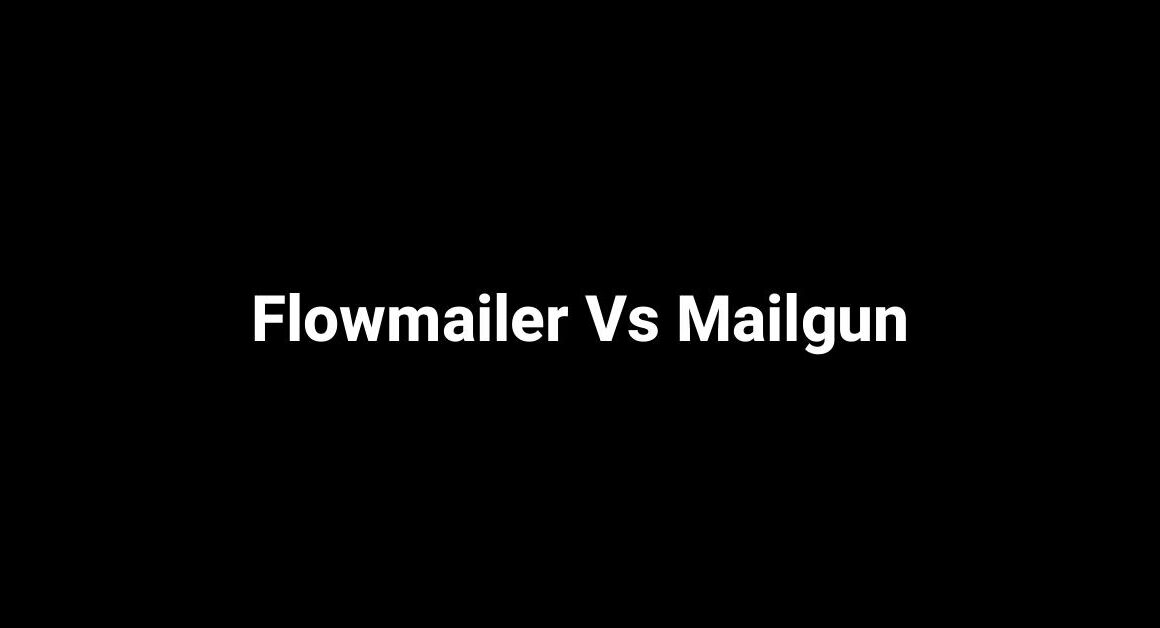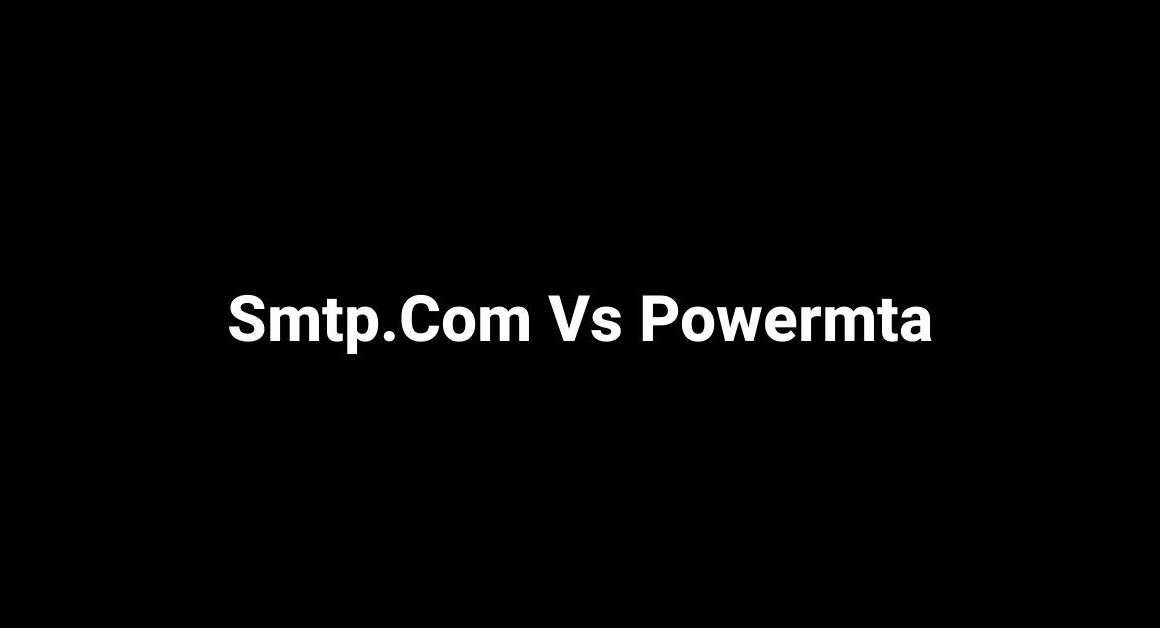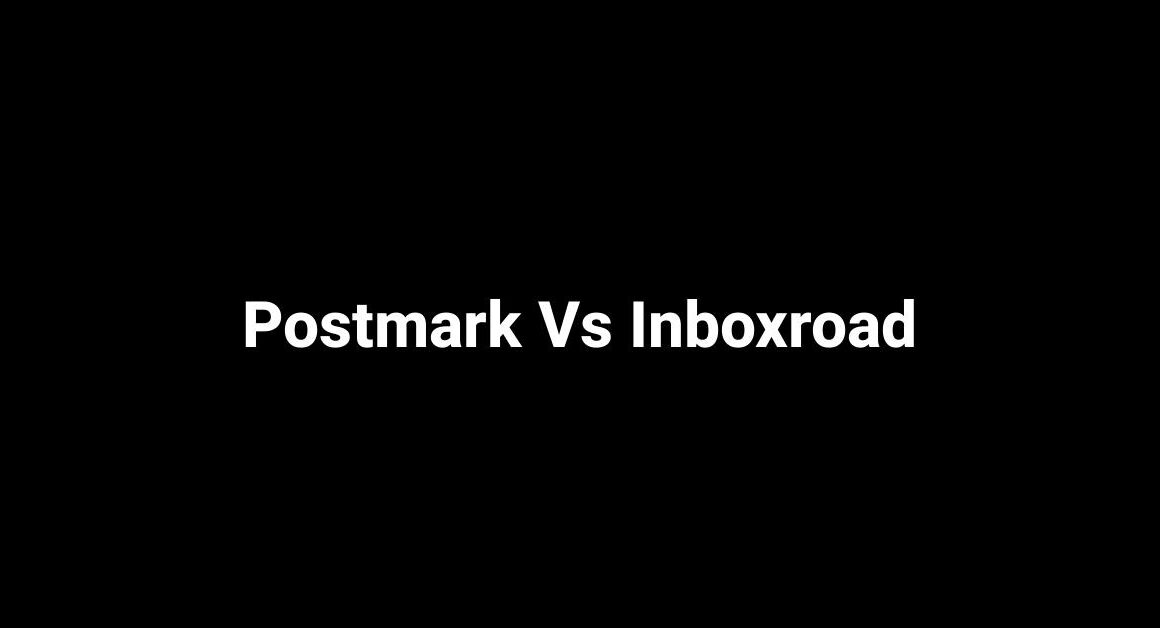Nick’s Review of Flowmailer Vs Mailgun
Flowmailer vs Mailgun: Choosing the Right Email Delivery Service
When it comes to sending emails, businesses and individuals alike rely on email delivery services to ensure their messages reach their intended recipients. With so many options available in the market, it can be challenging to choose the right service for your needs. In this article, we will compare two popular email delivery services: Flowmailer and Mailgun.
Flowmailer is a comprehensive email delivery service that offers a wide range of features for businesses of all sizes. It provides reliable email delivery, ensuring that your messages reach the inbox and avoid being marked as spam. Flowmailer also offers advanced tracking and analytics capabilities, allowing you to monitor the success of your email campaigns. With its user-friendly interface and extensive documentation, Flowmailer is suitable for both technical and non-technical users.
On the other hand, Mailgun is a popular email delivery service known for its powerful API and developer-friendly tools. It offers high deliverability rates and advanced email validation features, which help prevent bounced and invalid email addresses from affecting your sender reputation. With its robust integration options and real-time analytics, Mailgun is a preferred choice for businesses that require a high level of customization and control over their email workflows.
One of the key differences between Flowmailer and Mailgun is their pricing structure. Flowmailer offers a transparent and scalable pricing model based on the number of sent emails, allowing businesses to only pay for what they use. In contrast, Mailgun offers a tiered pricing system based on the number of monthly emails and additional features. While this can provide flexibility for businesses with varying email volumes, it may not be as cost-effective for those with smaller budgets or sporadic email sending needs.
Another important factor to consider is deliverability rates. Both Flowmailer and Mailgun have robust email deliverability features, including bounce handling and spam filtering. However, Mailgun has a reputation for excellent deliverability rates, thanks to its partnerships with major mailbox providers and stringent email validation processes. If ensuring that your emails reach the inbox is a top priority, Mailgun may be the preferable choice.
When it comes to API functionality, Mailgun has a clear advantage. With its powerful API and extensive documentation, developers can easily integrate Mailgun into their existing workflows and applications. Mailgun also offers a range of features and tools specifically designed for developers, such as webhooks, custom domains, and email validations. While Flowmailer does provide an API, its functionality may not be as extensive or developer-friendly as Mailgun’s.
Integration capabilities are another aspect to consider. Flowmailer integrates seamlessly with popular platforms and services, including CRM systems, e-commerce platforms, and marketing automation tools. It also supports SMTP and REST APIs, making it compatible with a wide range of applications. Mailgun, on the other hand, offers a vast array of integration options, including CMS plugins, SDKs, and third-party software. The level of integration required will depend on your specific business needs and existing tech stack.
Customer support is a critical consideration when choosing an email delivery service. Both Flowmailer and Mailgun offer comprehensive support options, including email support and extensive documentation. Flowmailer goes the extra mile by providing dedicated account managers and priority support for enterprise-level users. Mailgun also offers customer support channels, but it may not have the same level of personalized support as Flowmailer, particularly for smaller businesses.
In conclusion, choosing between Flowmailer and Mailgun depends on your specific business needs and priorities. Flowmailer is a reliable and user-friendly email delivery service suitable for both technical and non-technical users. It offers transparent pricing, extensive integration options, and a high level of customer support. On the other hand, Mailgun is a developer-focused service known for its powerful API and advanced customization features. It provides excellent deliverability rates, strong integration capabilities, and extensive documentation for developers. Assessing your unique requirements and considering factors such as pricing, deliverability, API functionality, integration capabilities, and customer support will help you make an informed decision when choosing between Flowmailer and Mailgun for your email delivery needs.
Tina’s Review of Flowmailer Vs Mailgun
In this blog post, we will be comparing three different transactional email software: SendGrid, Mailgun, and Flowmailer. SendGrid offers tools and features to empower your email marketing campaigns, with a simple and easy-to-use interface that allows you to create and design your emails according to your preferences. It also provides advanced real-time analytics tools to track key metrics. Mailgun is a powerful email API service that helps developers with email sending, receiving, and tracking procedures. It integrates with SMTP and HTTP API for bulk email sending and facilitates SPF, DMARC, and DKIM customizations for protection against spam. Flowmailer is an intuitive transactional email delivery management portal that ensures the security of stored data by working with redundant EU data centers. It offers reliable email APIs for the delivery of user-generated emails, as well as features like bounce rate management, message archiving, and PDF attachments. Overall, each software has its own unique features and benefits, and choosing the right one depends on your specific requirements.
Steve’s Review of Flowmailer Vs Mailgun
As a blog writer discussing different email delivery tools, it is essential to explore the features and capabilities of two popular options: Flowmailer and Mailgun. Email communication is a crucial aspect of any business, and choosing the right platform for efficient delivery is paramount. In this article, we will delve into the capabilities of Flowmailer and Mailgun to help you make an informed decision.
Both Flowmailer and Mailgun provide reliable email delivery services. Flowmailer boasts an intuitive user interface, making it easy to manage and monitor email campaigns. On the other hand, Mailgun offers extensive deliverability tools, ensuring that your emails reach the recipients’ inboxes consistently.
When it comes to security, Flowmailer shines with its emphasis on data protection and compliance. They prioritize the security and privacy of user data, enabling businesses to meet strict industry regulations such as GDPR. Mailgun, on the other hand, offers robust security measures as well, ensuring that your emails are safeguarded from potential security threats.
Another important aspect to consider is the deliverability rate. Flowmailer has a solid reputation for high deliverability rates, ensuring that your emails reach their intended recipients’ inboxes without ending up in spam folders. Mailgun also excels in this area by implementing advanced algorithms and practices to maximize deliverability rates.
Automation is a crucial feature for businesses looking to streamline their email communication processes. Flowmailer offers automation capabilities, allowing users to create customized workflows for different scenarios. This enhances efficiency and simplifies the management of email campaigns. Mailgun also provides automation features, empowering businesses to automate repetitive tasks and focus on other important aspects of their operations.
In terms of customer support, both Flowmailer and Mailgun offer robust assistance. Flowmailer provides comprehensive documentation and knowledge bases, enabling users to find answers to common queries. Their support team is also available to address specific concerns and assist users whenever needed. Mailgun offers similar support channels, providing users with the necessary resources and a responsive support team to resolve any issues that may arise.
Pricing is often a determining factor when choosing an email delivery platform. Flowmailer offers various pricing plans, allowing businesses to select the most suitable option based on their requirements. Pricing typically depends on factors such as the number of emails sent per month and the desired level of support. Mailgun also offers flexible pricing options, ensuring that businesses of all sizes can find a plan that aligns with their budget and needs.
In terms of integration capabilities, Flowmailer supports seamless integration with popular third-party applications such as CRM systems and marketing tools. This allows businesses to connect their email delivery platform with existing software and streamline their workflow. Mailgun also offers a range of integrations, making it easy to connect with different platforms and enhance overall productivity.
When it comes to reporting and analytics, both Flowmailer and Mailgun provide valuable insights. Flowmailer offers detailed reports on email delivery rates, open rates, click-through rates, and other relevant metrics. This data helps businesses assess the performance of their email campaigns and make data-driven decisions. Mailgun also offers comprehensive analytics tools, enabling businesses to track email performance and measure the effectiveness of their campaigns.
In conclusion, both Flowmailer and Mailgun offer reliable and feature-rich email delivery services. Flowmailer stands out for its intuitive interface, strong security measures, and compliance with industry regulations. Mailgun, on the other hand, excels in terms of deliverability tools, automation capabilities, and flexible pricing options. Ultimately, the choice between the two platforms depends on your specific business needs and priorities. Consider factors such as deliverability rates, automation features, integration capabilities, and pricing when making your decision. Regardless of your choice, both Flowmailer and Mailgun can contribute to enhancing your email communication and ensuring efficient delivery to your audience.
Rick’s Review of Flowmailer Vs Mailgun
The text provided is not relevant to the topic of “Flowmailer vs Mailgun.” It appears to be a website footer with links to different categories, legal policies, vendor information, and contact details. As a blog writer discussing the subject of “Flowmailer vs Mailgun,” I would need the actual information about these two products to provide a detailed summary.
Beth’s Review of Flowmailer Vs Mailgun
Flowmailer is a powerful platform for transactional communication, offering features such as compliance and security, reliable infrastructure, deliverability management, and more. It is a reliable and fast platform for email delivery, making it a strong alternative to MailGun.
When comparing Flowmailer to MailGun, one of the key advantages of Flowmailer is its focus on email deliverability. While MailGun focuses on creating bulk emails, Flowmailer is dedicated to delivering every email to the inbox. Flowmailer ensures high uptime, fast delivery speed, and quick response time, eliminating the need for recipients to wait for emails. To enhance deliverability, Flowmailer supports authentication methods like SPF and DKIM and provides a reporting tool for DMARC implementation.
Another advantage of Flowmailer over MailGun is its expert support. Flowmailer offers expert support via email and telephone, ensuring your email success. They also provide premium service level agreements (SLAs) for crucial email sending, guaranteeing 24/7 support. On the other hand, MailGun requires users to submit a support ticket and wait for assistance.
Customer reviews also highlight the benefits of choosing Flowmailer. Customers appreciate the platform’s focus on deliverability, its professional support, and the excellent level of service they receive.
In terms of pricing, Flowmailer does not offer freemium accounts like MailGun. This is to maintain domain reputation control. However, Flowmailer provides a free trial account with all of its capabilities and allows users to send up to one hundred outbound emails. Their pricing model is transparent, and users only pay for the number of emails sent. Unlike MailGun, Flowmailer includes all features without the need to purchase add-ons separately.
If you want to professionalize your email deliverability, Flowmailer is the ideal platform. It specializes in delivering transactional emails, ensuring that your vital emails reach your customers’ inboxes every time. With excellent deliverability, advanced templates, and detailed tracking, Flowmailer offers a powerful solution for optimizing your email communication.
To get started with Flowmailer and experience their features, you can sign up for a free trial account. Simply fill out a form to start using Flowmailer’s capabilities and enjoy reliable deliverability, advanced templates, and in-depth tracking. Flowmailer is dedicated to ensuring that every email hits the inbox, making it the go-to platform for professional email deliverability.
In conclusion, Flowmailer is a top alternative to MailGun when it comes to email delivery. With its focus on deliverability, expert support, pricing transparency, and powerful features, Flowmailer provides a reliable and efficient platform for sending transactional emails. Whether you’re a small business or a large enterprise, Flowmailer’s capabilities can help optimize your email communication and ensure that your messages reach the right recipients. Take advantage of their free trial account and experience the benefits of Flowmailer for yourself.
Jim’s Review of Flowmailer Vs Mailgun
This text does not provide any relevant information about the topic “Flowmailer vs Mailgun”. It is a cookie consent message and contains unrelated information about Reddit and its partners using cookies to improve the user experience. The text also includes links to various topics and communities on Reddit, such as gaming, sports, business, crypto, television, and celebrity. It is not related to the subject of the comparison between Flowmailer and Mailgun.
Dan’s Review of Flowmailer Vs Mailgun
Flowmailer is a platform that offers email and SMS APIs, as well as other features such as SMTP relay service and email deliverability management. The platform is designed to provide advanced email technology, handling different types of data from multiple source systems and allowing the addition of multiple brands and languages to single templates.
Flowmailer aims to provide more than just email delivery by offering unique features to enrich transactional emails, send personalized attachments, and analyze performance in real-time. The platform’s Template Engine is built to handle various types of email templates, from basic HTML templates to advanced data structures.
For users considering moving away from Mailgun, Flowmailer offers a reliable alternative with self-hosted infrastructure and top-notch email delivery. The platform is supported by experts who specialize in email and is always GDPR compliant. Users can explore the platform’s functionalities with a 30-day free trial account.
Flowmailer guarantees 100% GDPR compliance and ensures that data stays within the EU. The platform is based in the Netherlands and operates several data centers. Legal documentation is available to prove the compliance.
Flowmailer offers a demo to provide more insights into how it compares to Mailgun. Users can book a demo with the experts to see how Flowmailer works and why it should be considered as an alternative.
Overall, Flowmailer positions itself as a privacy-first platform with a focus on GDPR compliance. It aims to provide advanced email technology and a range of features beyond just email delivery. Users who are looking for an alternative to Mailgun can explore Flowmailer’s self-hosted infrastructure and take advantage of its free trial to experience its functionalities.
Jennifer’s Review of Flowmailer Vs Mailgun
The blog post compares the features, website integration, and pricing of two email service providers, Mailgun and SendGrid. The blog emphasizes that both platforms offer SMTP relay functionality and API integration options, making them suitable for handling transactional emails. However, they also have differences in terms of features and target users. Mailgun focuses on deliverability and scalability, offering email validation tools and flexible pricing. On the other hand, SendGrid provides more options for email marketing and design, making it suitable for both transactional and marketing emails. In terms of website integration, both platforms can be easily integrated with WordPress using plugins. When it comes to pricing, SendGrid offers a free plan with limitations, while Mailgun does not have a free plan but provides a three-month trial period with up to 5,000 free emails. The blog suggests that Mailgun is a better choice for websites that need higher email limits, while SendGrid is suitable for small websites with fewer transactional emails or for those who want to leverage its marketing tools. The blog concludes by recommending Mailgun for its flexible pricing and SendGrid for its marketing features.
Dave’s Review of Flowmailer Vs Mailgun
Mailgun is a popular email service provider that offers features and benefits compared to Sendgrid. One advantage of Mailgun is that it allows users to send emails at their own pace, without restricting their sending volume. Sendgrid initially offers 40,000 free emails in the first 30 days, but that number quickly drops to only 100 monthly emails. Mailgun also provides email verification services, which help prevent deliverability issues and stay off blocklists. While Sendgrid has launched its own validation product, Mailgun’s validation product is more mature and likely to deliver better and faster results.
Another advantage of Mailgun is its commitment to monitoring email reputation and deliverability. With Mailgun’s Deliverability Services, users have experts who proactively monitor IPs, email sending reputation, and email infrastructure in real time. In contrast, Sendgrid’s dedicated services are typically reserved for high-volume senders with deep pockets, leaving small businesses to fend for themselves.
Mailgun also offers comprehensive analytics and insights into email performance. Users can measure the business impact of their email campaigns with A/B testing and real-time analytics. They can also track how emails are rendering on different email clients like Gmail and Outlook. Sendgrid does not provide the same level of analytics and insights.
Additionally, Mailgun provides expert services from day one. Their team of deliverability experts can guide users through the onboarding process and beyond. They offer customized sending plans that scale with the user’s needs. In contrast, Sendgrid’s dedicated service is mostly reserved for high-volume senders, leaving small businesses to rely on customer support.
In conclusion, Mailgun offers several advantages over Sendgrid. It allows users to send emails at their own pace, provides email verification services, and offers dedicated experts who monitor email reputation and deliverability. Mailgun also provides comprehensive analytics and insights and offers expert services from day one. These features make Mailgun a strong alternative to Sendgrid for businesses of all sizes.




